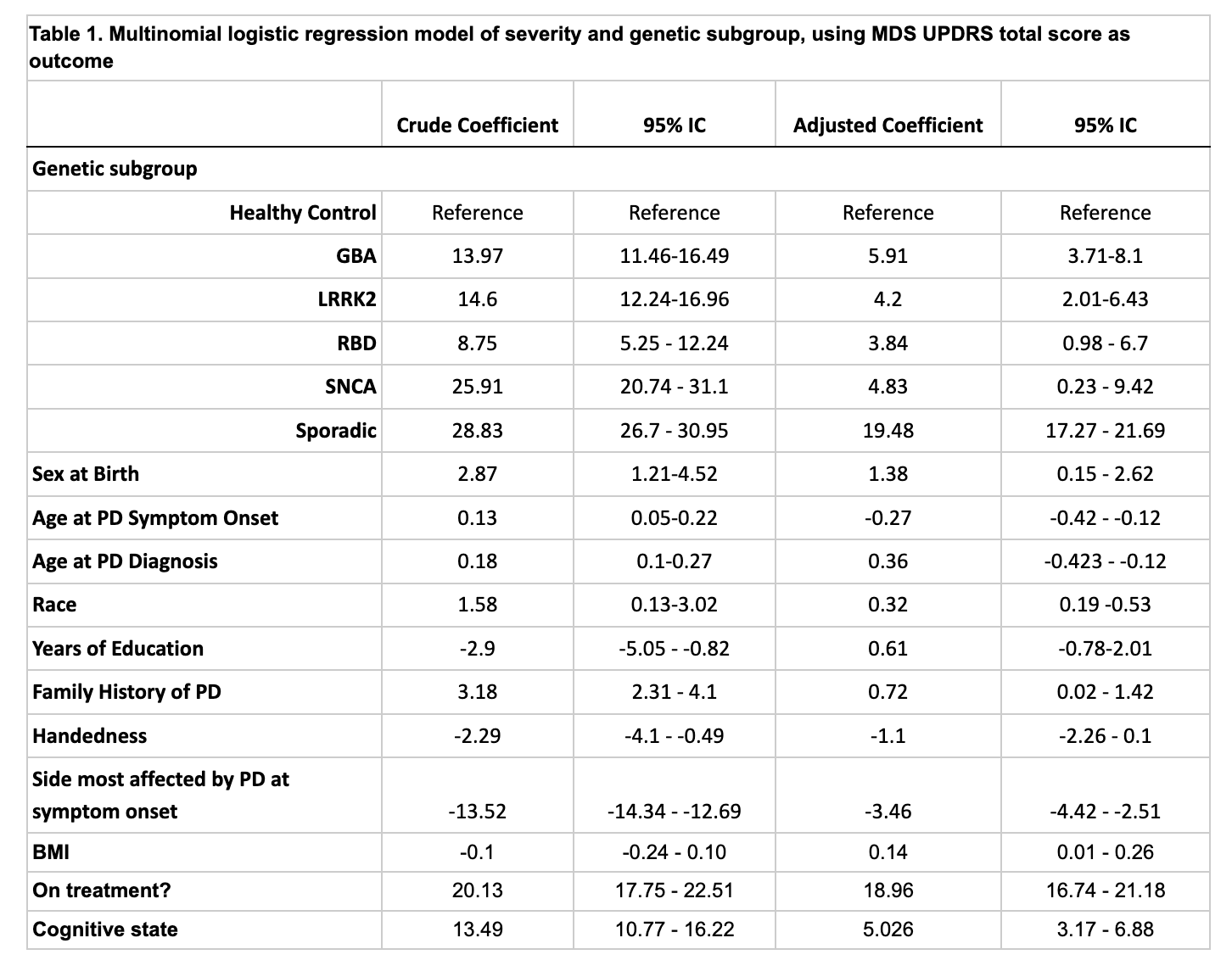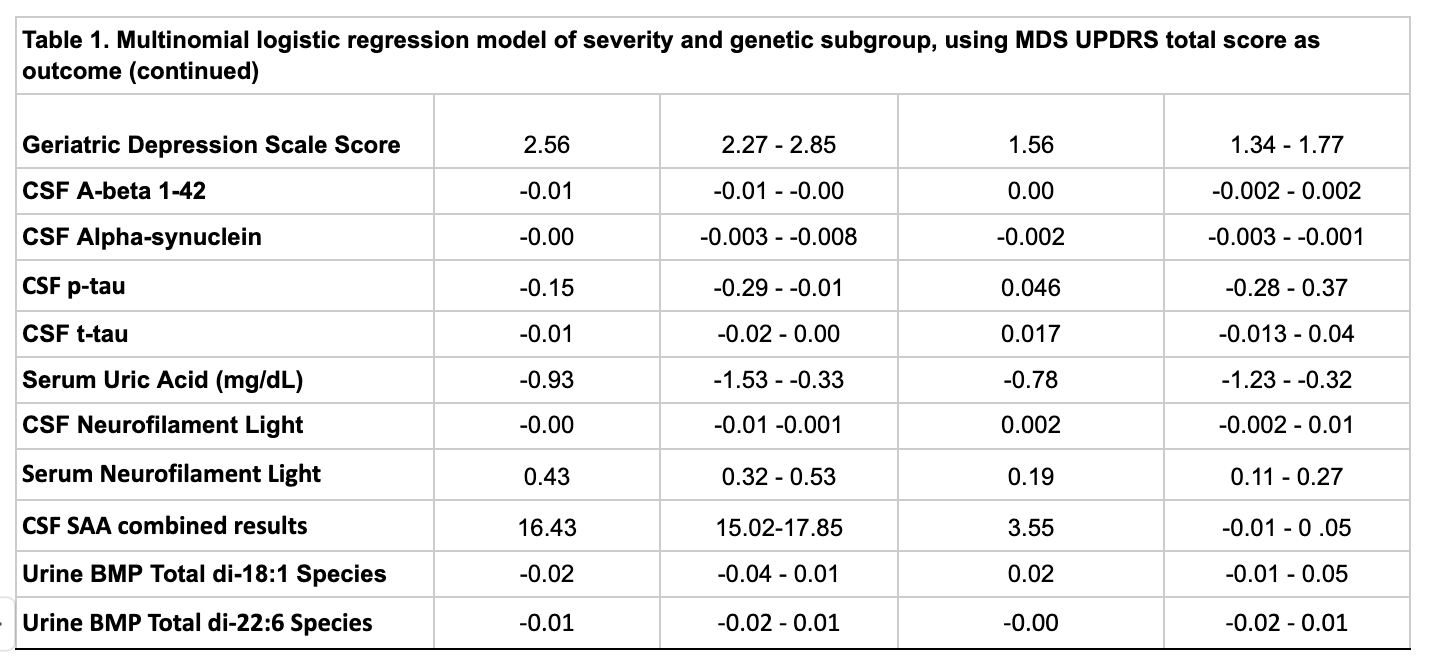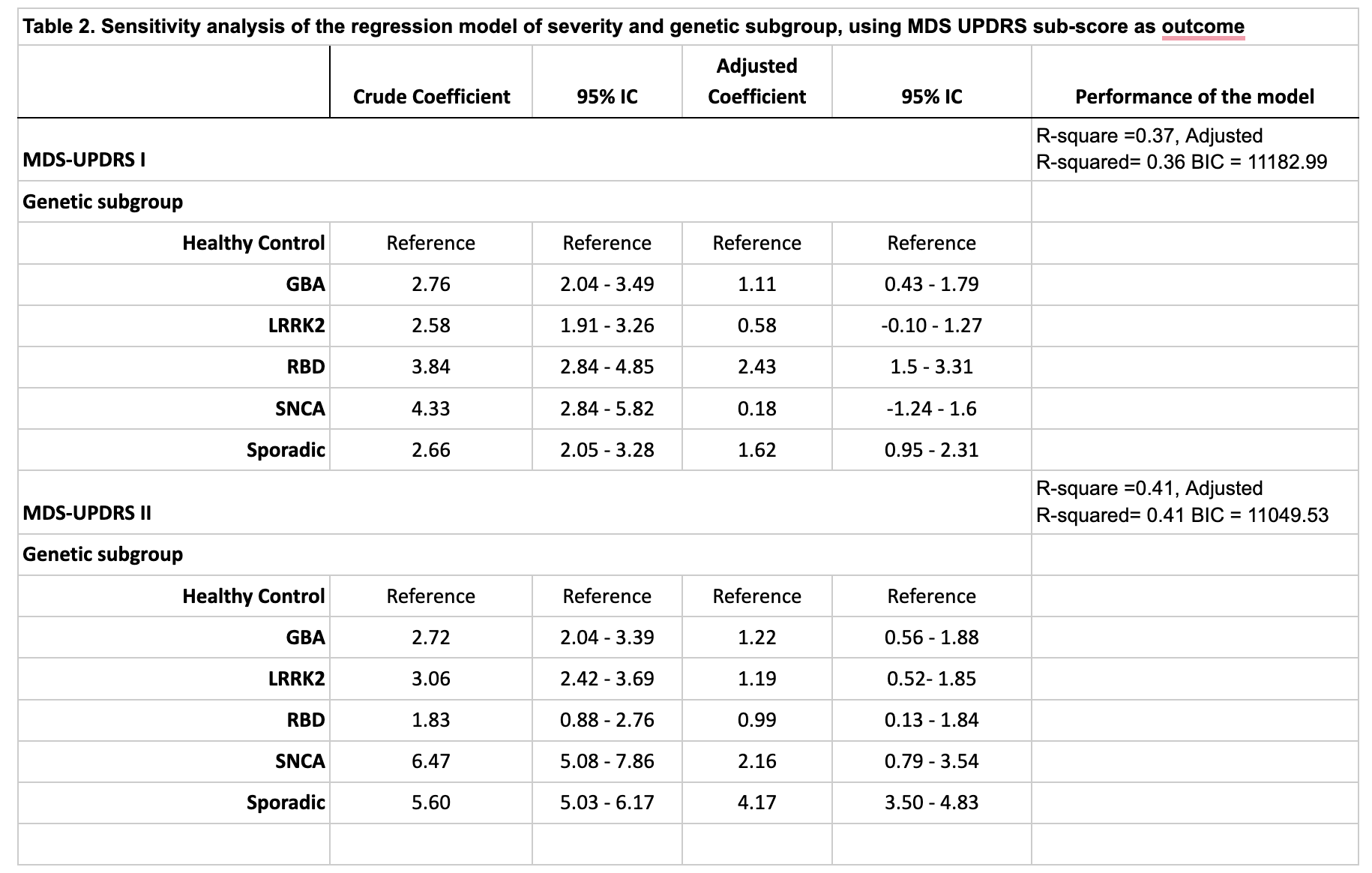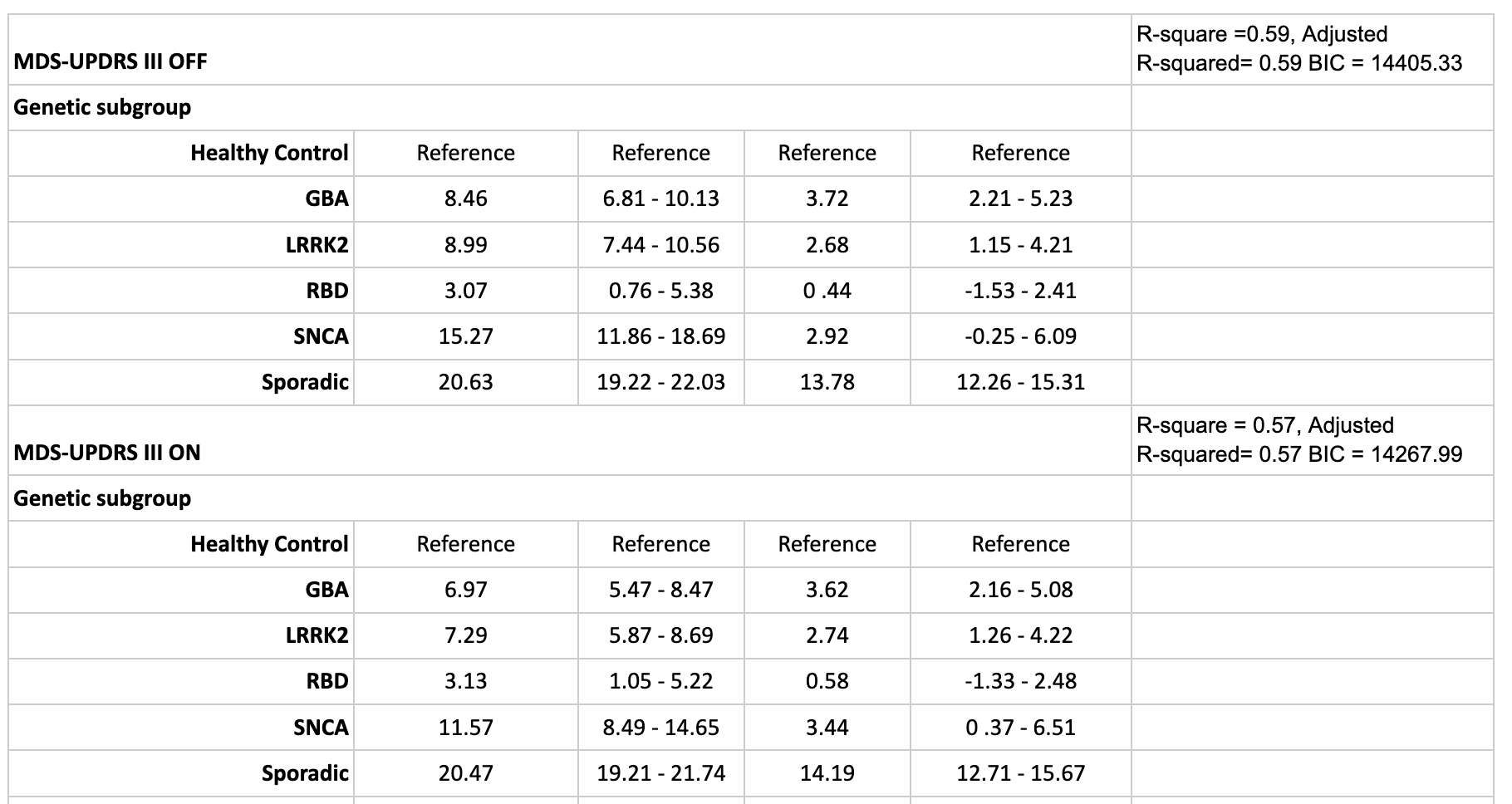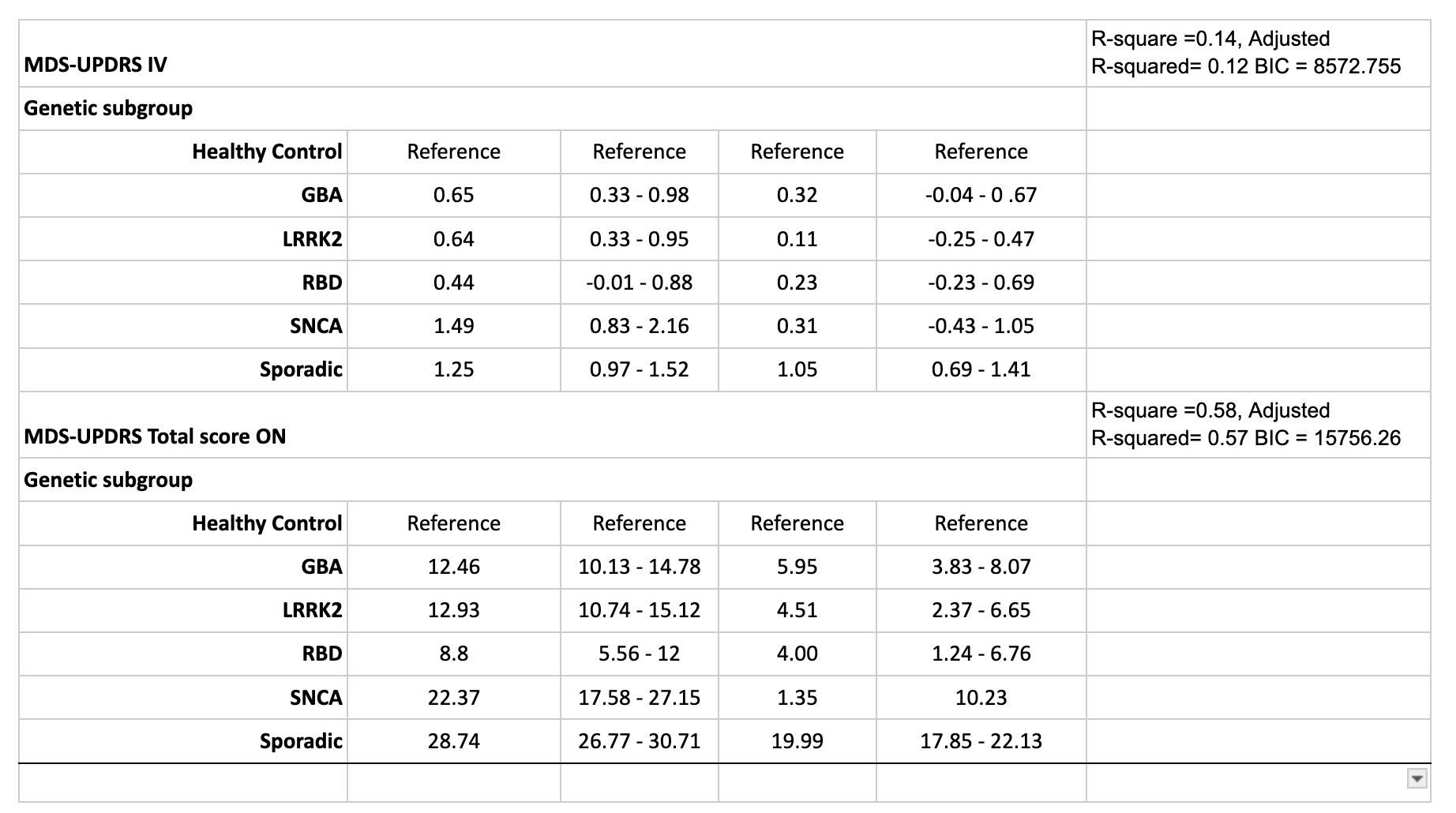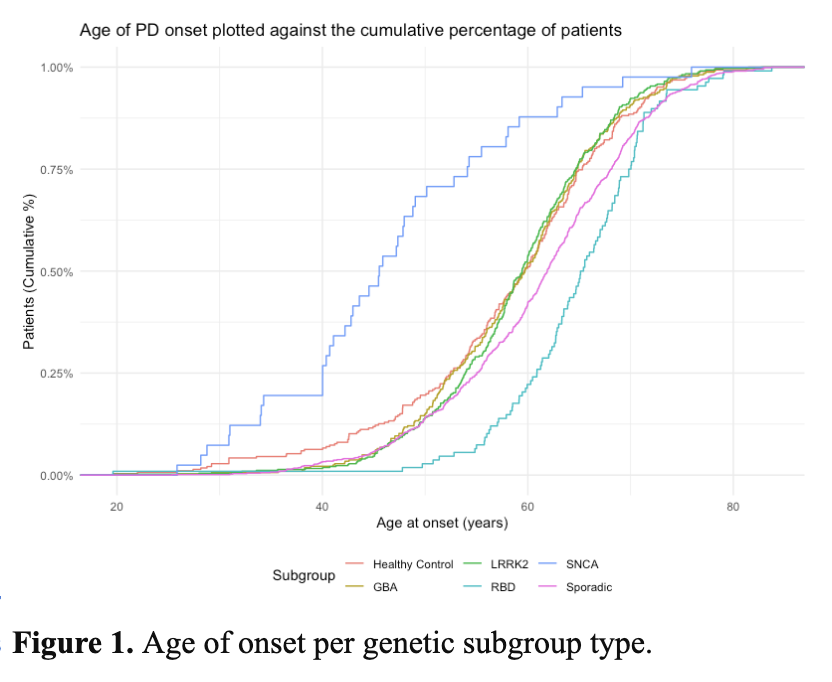Category: Parkinson's Disease: Genetics
Objective: Explore how different genotypes can affect the disease severity and progression in Parkinson’s patients.
Background: Genetic advances have identified specific mutations linked to disease traits and severity, highlighting the importance of genetic factors in PD’s variability and progression. This complexity underscores the challenge of understanding PD’s pathology and emphasizes the potential of genetic insights for personalized treatment and better patient outcomes, marking a shift toward a more nuanced comprehension of PD’s genetic underpinnings and clinical management.
Method: This study analyzed data from the Parkinson’s Progression Markers Initiative (PPMI), a longitudinal, international cohort study involving 156 centers worldwide. PD patients and healthy controls were included, with comprehensive assessments covering demographics, medical history, symptoms, and disease progression. Data analysis involved 1758 participants, emphasizing variables such as genetic subgroups, demographic details, disease characteristics, and biomarkers. Statistical methods included summarizing categorical variables, analyzing continuous variables for central tendency and dispersion, and employing the Kruskal-Wallis test and multivariate linear regression to examine the impact of genetic subgroups on disease severity, measured by the MDS-UPDRS scale.
Results: A total of 2008 participants were included. Significant demographic and clinical differences were observed across genetic subgroups of Parkinson’s Disease (PD) [Figure 1], with the sporadic PD group exhibiting the highest symptom severity. Adjustments for confounders revealed the GBA mutation group as the second most severely affected, followed by SNCA and LRRK2 mutation carriers [Table 1]. Sensitivity analysis underscored idiopathic PD’s greater severity over genetic forms. GBA mutations notably affect both motor and non-motor symptoms, illustrating the complex interplay between genetic and environmental factors in PD pathology [table 2]. The RBD group substantially impacted non-motor symptoms, which is evident in the MDS-UPDRS Part I score.
Conclusion:
In conclusion, our findings reveal that sporadic PD, GBA, SNCA, LRRK2, and RBD mutations significantly influence disease severity in descending order. These insights underscore the importance of personalized treatment strategies and highlight genetic profiling’s critical role in optimizing Parkinson’s Disease management.
Table 1
Table 1 (continued)
Table 2
Table 2 (continued part 1)
Table 2 (continued part 2)
Figure 1
To cite this abstract in AMA style:
N. Pacheco-Barrios, K. Acurio, J. Rolston, T. Siepman, B. Illigens. The association of Severity and Monogenetic Subgroups in Parkinson’s Disease [abstract]. Mov Disord. 2024; 39 (suppl 1). https://www.mdsabstracts.org/abstract/the-association-of-severity-and-monogenetic-subgroups-in-parkinsons-disease/. Accessed July 15, 2025.« Back to 2024 International Congress
MDS Abstracts - https://www.mdsabstracts.org/abstract/the-association-of-severity-and-monogenetic-subgroups-in-parkinsons-disease/

